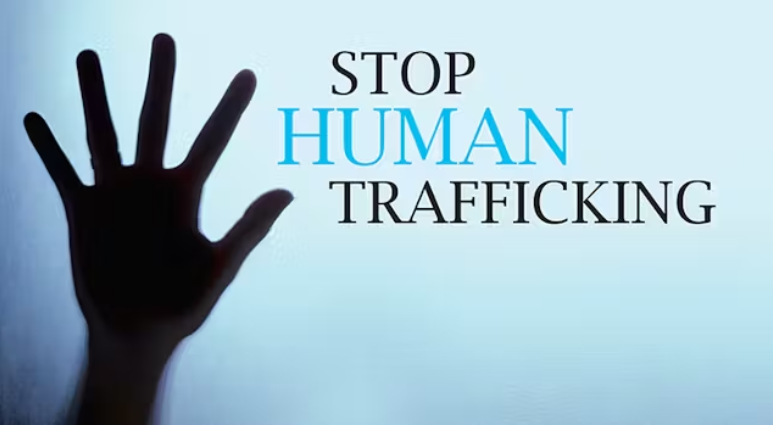Human trafficking is a national problem that affects millions of people. Over 27.6 million people were caught in forced labor or sexual exploitation in 2021 alone, producing unlawful earnings of $150 billion yearly. Underlining the widespread prevalence of this crime, the National Human Trafficking Hotline managed in the United States over 10,000 cases in 2022.
By putting practical, successful policies into force inside their operations, businesses may significantly help to solve human trafficking. The article looks at doable actions businesses might take in 2025 to intensify their fight for human trafficking prevention and the ways Lauth Investigations International helps corporations in these initiatives.
The Growing Importance of Human Trafficking Prevention
Prevention of human trafficking is not only the responsibility of governments and non-governmental organizations; companies have great influence to stop this crime. Globally distributed companies especially risk unintentionally endorsing coerced labor policies. Proactive anti-human trafficking strategies help companies not only defend human rights but also improve their corporate social impact and reputation.

1. Establish a Comprehensive Anti-Human Trafficking Policy
Corporate responsibility is mostly dependent on a defined, legally enforced anti-human trafficking policy. This policy should set forth:
- Zero tolerability of child exploitation and forced labor.
- Supplier transparency standards.
- Strategies to spot and reduce trafficking risks in supply chains and running businesses.
Action Tip: Make sure every participant—from staff members to outside partners—can clearly see this policy. Frequent revisions consistent with international anti-trafficking regulations improve compliance.
2. Train Employees to Recognize and Report Trafficking
Preventive action depends on education. Teaching staff members the indicators of human trafficking will help to produce a cautious workforce.
- Add signs particular to your sector, such as odd hiring policies or limited worker mobility.
- Use actual cases to deepen knowledge.
- For instance, businesses like Marriott International have taught more than 850,000 staff members to identify trafficking in their hotels.
Action Tip: To get customized training courses, team with groups like Truckers Against Trafficking.
3. Enhance Supply Chain Transparency
Often the weak link in human trafficking prevention is supply chains. Companies should:
- Perform outside audits to confirm supplier compliance with moral working standards.
- Track goods and guarantee openness at every manufacturing level using technology, including blockchain.
- Emphasizing their dedication to anti-trafficking policies, demand certificates like Fair Trade or SA8000 from vendors.
4. Raise Workplace Awareness
Giving staff members awareness of human trafficking prevention makes their workplace safer. Among important projects are:
- Putting hotline numbers—like the National Human Trafficking Hotline—in easily available places.
- planning seminars and informational meetings.
Action Tip: Share reminders and updates regarding human trafficking prevention using digital tools, including internal emails or corporate apps.
5. Implement Ethical Recruitment Practices
Companies have to guarantee their recruiting policies are moral and open. One often used entrance for trafficking is fraudulent recruitment. Among the actionable steps for businesses are:
- Stopping recruitment costs.
- Background checks on hiring agents.
- Making sure employees preserve their identity records.
- Working with ethical recruitment companies will help to reduce hazards.
6. Engage in Community and Industry Collaboration
- To support their anti-trafficking programs, companies should form alliances with NGOs, law enforcement, and trade associations.
- Cooperation among law enforcement agencies can reveal local tendencies in trafficking.
- NGOs can provide materials for policy development and victim aid.
Action Tip: Join industry organizations such as the Responsible Business Alliance to exchange best practices and tools.
7. Support Survivor Rehabilitation
Supporting survivors upholds the company’s dedication to human rights and fits with corporate social responsibility. Companies can:
- Present career prospects and job training programs.
- Support housing or schooling financially.
- Thistle Farms, a U.S.-based enterprise, for example, hires trafficking survivors to assist in their life reconstruction.
- Create mentoring initiatives whereby seasoned workers are matched with survivors.
How Does Corporate Responsibility Enhance Social Impact?
Human trafficking prevention actively improves a company’s standing and credibility among its suppliers. Anti-trafficking policies fit more general ESG (Environmental, Social, and Governance) objectives, which are very important to consumers and investors.
Here are some benefits:
- Draw in shoppers with a social conscience.
- Boost investor trust.
- Promote staff loyalty and pride.
How does Lauth Investigations International help?
Lauth Investigations International provides customized solutions to fight human trafficking and focuses on business investigations. Their offers consist of:
- Supply Chain Audits: Point up weaknesses and guarantee ethical standard compliance.
- Employee Training Programs: Give thorough instruction to identify sources of trafficking.
- Policy Development: Design and carry out anti-traffic rules compliant with legal criteria.
By means of Lauth, companies equip themselves with the skills and knowledge required to implement efficient action against human trafficking in 2025.
Conclusion
Prevention of human trafficking is a top global concern, and companies are especially qualified to lead the movement. Companies can make a big difference by putting practical ideas, including supply chain openness, survivor support, and employee training, into action. Involving knowledgeable professionals like Lauth Investigations International helps to ensure a strong reaction to this problem and boosts these initiatives even more. Working together, stopping human trafficking in 2025 can become a turning moment in the battle of human trafficking prevention.
If your business is committed to making a difference, explore the expert services of Lauth Investigations for tailored investigative solutions.


